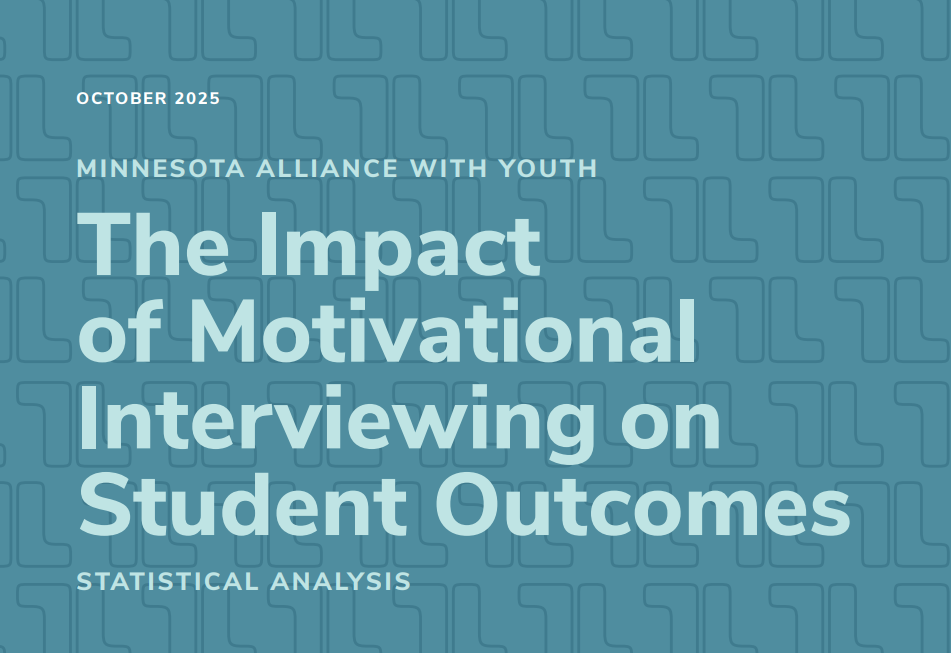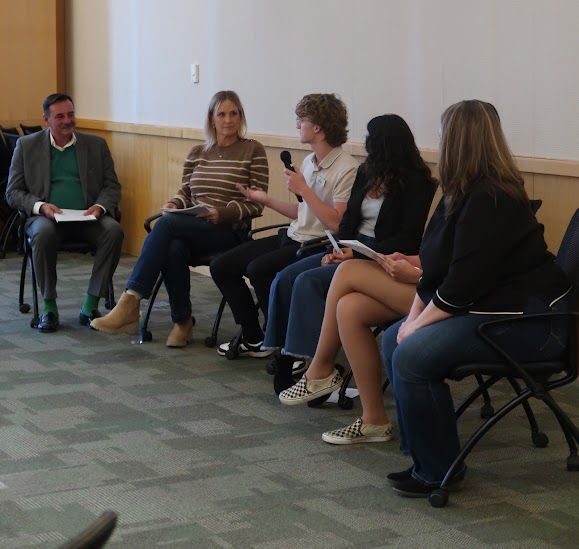The AmeriCorps Promise Fellows program engages students in grades 6 through 12 in developing personalized plans that keep them engaged in school and on track to graduate, using evidence-based, data-informed strategies grounded in leading dropout-prevention research. Promise Fellows implement
interventions in three areas: caring adults, service and service-learning, and out-of-school time supports. In 2019, Minnesota Alliance With Youth began training Fellows in Motivational Interviewing (MI) to help Fellows build positive relationships and trust with students.
Motivational Interviewing is “a collaborative, goal-oriented style of communication with particular attention to the language of change. It is designed to strengthen personal motivation for and commitment to a specific goal by eliciting and exploring the person’s own reasons for change within an atmosphere of acceptance and compassion.” (Miller & Rollnick, 2012). It offers an opportunity to shift the typical reliance on extrinsic motivators, such as grades, toward a focus on intrinsic motivation. This approach tends to resonate with educators and stakeholders who are committed to improving student achievement through more meaningful and sustainable engagement.”
During the 2024-25 academic year, the Alliance partnered with Terraluna Collaborative to study the relationship between MI fidelity and student attendance outcomes and explored what implementation factors most influenced program impact. The findings offer insights into how the Alliance can strengthen training and support for Fellows moving forward.
When AmeriCorps Promise Fellows implemented Motivational Interviewing with fidelity in their 1:1 student interventions, the effect on student attendance was statistically significant across our sample of more than 500 students served in 2024-2025. Analysis showed that each one-point increase in the MI observation score (on a four-point scale) was associated with an average four-percentage-point increase in student attendance.
The study also examined students’ social-emotional growth by analyzing changes in student engagement, measured by scores in the Student Engagement Instrument (SEI) taken early in the school year and towards the end. Motivational Interviewing produced statistically significant improvements in four specific domains measured by the SEI; Teacher-Student Relationships, Control and Relevance of School Work, and Future Aspirations and Goals. Overall, advanced MI training was linked to higher levels of intrinsic motivation among students. These results confirm that strong implementation of Motivational Interviewing skills strengthens the impact Fellows have on student outcomes and will be used to refine training and ongoing support systems.
Read the full report: The Impact of Motivational Interviewing on Student Outcomes.









